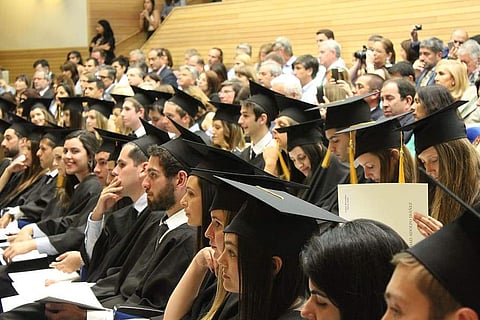

Chris Byrne and Khadijah E Olonade worked hard to get into medical school, but the computer said no.
The teenagers are among thousands of graduating high school students scrambling for spots at British universities following the government's disastrous decision to award final grades using an algorithm.
The process was intended to replace exams cancelled because of the coronavirus pandemic, but unfairly lowered the marks of many students and froze them out of their chosen schools.
While the programme was ditched after an outcry and affected students had their grades raised, universities and families are still picking up the pieces.
Many 18-year-olds don't know if they will be attending college in the fall.
Aspiring doctors are particularly in limbo because the hands-on training medical schools provide means the number of slots can't easily be expanded to accommodate those turned away by the algorithm debacle.
I'm stuck waiting, Byrne said. There has been no word about if there's going to be enough medicine places for me to get in this year. There's just a lot of uncertainty about what's going to happen.
COVID-19 has upended many aspects of life, including the complex admissions system for higher education in Britain.
Universities offer final-year high school students places based on grades predicted by their teachers, but admission is contingent on the results of final exams, known as A Levels.
This year, with schools largely shut since March and no exams, education authorities in England attempted to standardise results by running students' teacher-predicted grades through an algorithm that compared them with their schools' past performance.
High-achieving students at under-performing schools, many in deprived areas, ended up with their marks downgraded, while students at above-average schools kept their predicted grades.
Amid anger from students, parents and educators, and growing unease within Britain's governing Conservative Party, the government backed down this week and said students who were downgraded could get their predicted grades.
That brought relief but hasn't ended the uncertainty, because some students who now have the grades they needed to go to the universities they applied to have been told the courses they hoped to take are full.
Sixteen-year-olds, whose equally crucial GCSE exams were also cancelled by COVID-19, are due to receive results Thursday that will determine their future studies.
The government has promised there will not be a repeat of the A-levels fiasco.
Universities caught between a government in damage-control mode and students demanding fair treatment have formidable choices to make.
